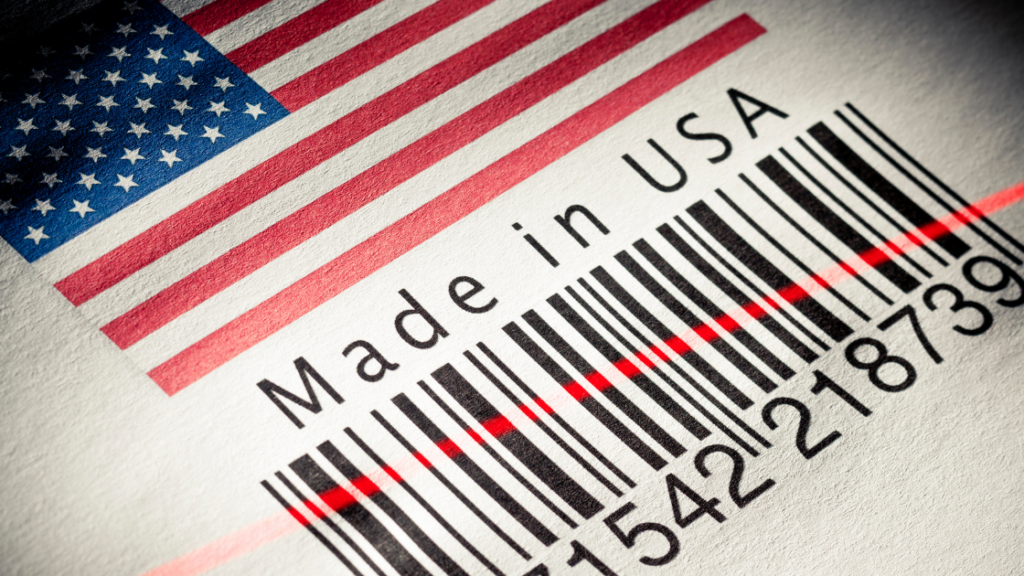CPA sent the following letter to U.S. Representative Kevin Brady (R-TX) regarding his letter, signed by House Ways and Means Committee Republicans, urging U.S. Trade Representative Ambassador Katherine Tai to resume U.S. negotiations to complete an Environmental Goods Agreement (EGA). The EGA strategy would harm U.S. manufacturing and pursuing tariff reduction historically ends in the loss of American jobs and increased imports.
Dear Representative Brady:
The Coalition for a Prosperous America (CPA) writes regarding your April 22 letter to Ambassador Tai asking her to resume negotiations at the WTO to complete the Environmental Goods Agreement (EGA).
We support your goal of supporting USA-made goods and reaping the benefits of the resulting good paying jobs. However, we do not support the EGA strategy, which is not a new approach. Pursuing tariff reduction historically ends in more import penetration and losses of U.S. jobs.
This is especially the case where the U.S. producer share of its home market is low, which is true for “environmental goods.”
U.S. manufacturing has suffered a steady loss of our own domestic goods market, which is the largest in the world at $7 trillion and by far the most important market for U.S. businesses, workers, and shareholders.
In some domestic sectors, such as solar power generation, the imported market share is above 80%. In many of the sub-sectors of machinery and electronics (which are the components for many environmental goods), we have steadily lost market share and today hold less than 50% share in our own market. If we reduce tariffs at home and other nations reduce their tariffs, there is every likelihood that further import penetration will rise more quickly than export sales.
Past experiences with multilateral tariff reduction are cautionary tales producing market share losses rather than gains. In 1994, the U.S. and Europe concluded the Agreement on Trade in Pharmaceutical Products. This reduced our normal trade relations tariffs for pharmaceutical products to zero on an “unconditional MFN” (most favored nation) basis. What this meant in practice is that even countries which did not participate in the negotiations got a free-ride on the tariff reduction, and what ensued was massive off-shoring from the U.S. and Europe to low-cost countries.
The manufacture of essential medicines, active pharmaceutical ingredients, and key starting materials has declined drastically in the U.S. since that time. As a result, shortages and product quality issues became horribly commonplace long before the COVID pandemic. Today, the issue is how to rebuild U.S. production in these essential goods and increase our declining market share in our home market.
It is attractive to believe that when other countries reduce tariffs more than the U.S., that we will naturally gain market share. This has been tried several times and failed. For example, the United States – Korea Free Trade Agreement went into effect in 2012. Korea had higher tariffs than the U.S. and, as a result, reduced them more than we did. However, the result was that “the U.S. trade deficit in goods with Korea increased by 75 percent from $13.2 billion to $23.1 billion (2017), while the overall deficit increased by 57 percent from $6.3 billion to $9.8 billion (2017).”[1]
Even the most significant unilateral reduction of foreign tariffs – China’s accession to the WTO in 2001 – confounded free trade economists’ projections by decimating our producers across industries. A key argument in supporting China’s accession and granting the country permanent normal trade relations was that “[f]or industrial goods, China agreed to cut tariffs from an average of 25 to 9 percent overall, and 7 percent in those priority products of ours.”[2]
As attractive as the concept may be, there is no data to support the notion that lowering tariffs globally helps American manufacturing supply chains gain market share at home and abroad. Foreign tariff cuts have not helped because many foreign governments use other strategies, outside the scope of trade deals, to protect their home market from U.S. imports and to penetrate our market with their national champion or state-supported firms.
CPA represents leading producers of environmental goods who manufacture here in the United States. The American market is vast, and domestic production of these goods unfortunately accounts for a small minority of our home consumption. We should use an aggressive strategy, including tariffs, to foster a surge of investment into domestically-produced environmental goods and take advantage of our home market advantage. That is what China and other industrial nations have done to achieve the strength to thereafter expand to global markets. And it is what we should do.
We stand ready to work with you in this regard.
Thank you,
Zach Mottl, Chairman
Michael Stumo, CEO
[1] USTR, Fact Sheet on U.S.-Korea Free Trade Agreement Outcomes, available at https://ustr.gov/about-us/policy-offices/press-office/fact-sheets/2018/september/fact-sheet-us-korea-free-trade
[2] U.S. Senate, Committee on Commerce, Science, and Transportation, Statement of Hon. William M. Daley, Secretary of Commerce, (April 11, 2000) available at https://www.govinfo.gov/content/pkg/CHRG-106shrg80403/html/CHRG-106shrg80403.htm













